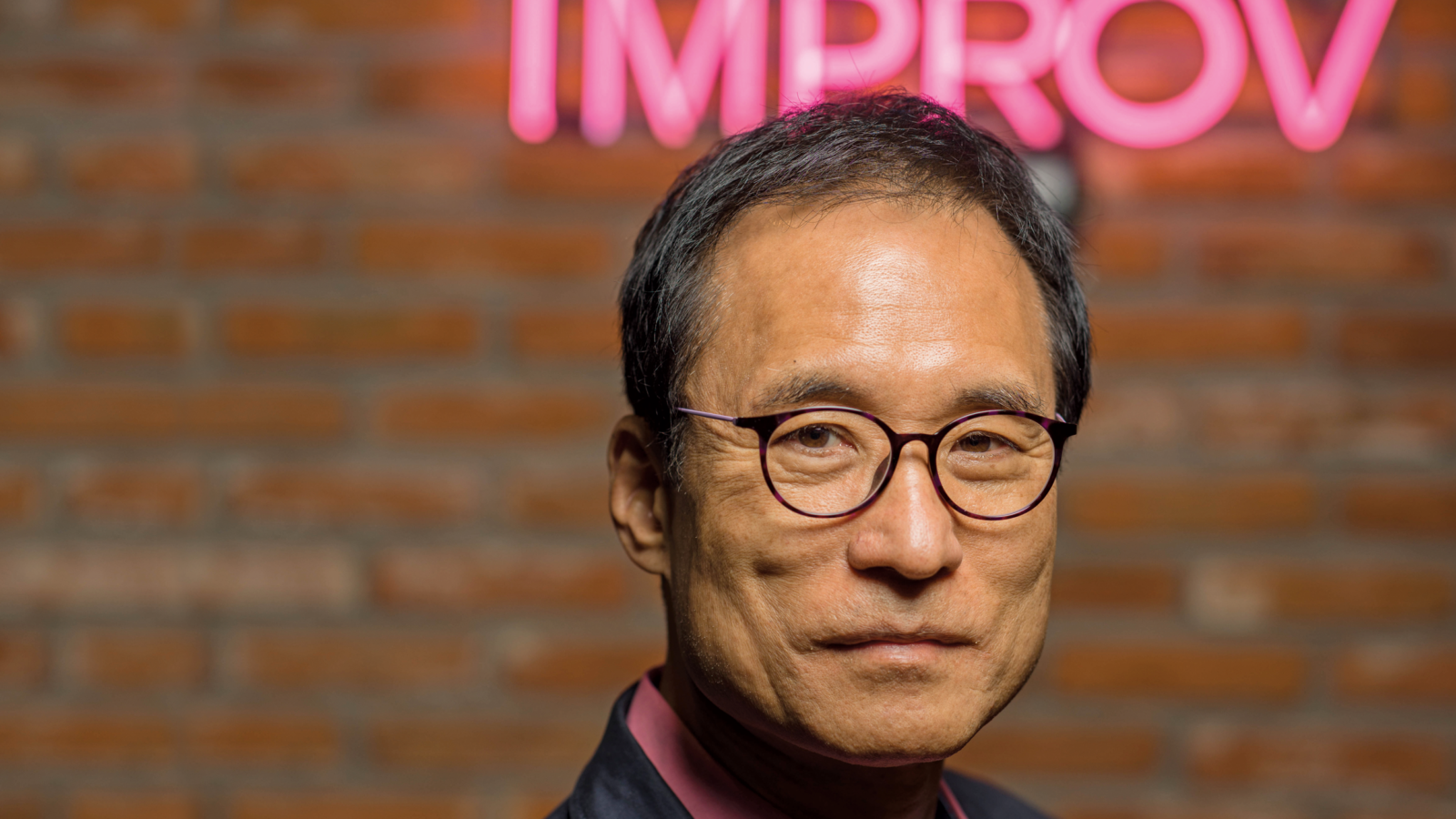Alex Park ’81 is finding a way to make a difference in his life’s second act
Alex Park ’81 knew he needed a change. It was 2015, and he had worked in the financial industry for 30 years, building a successful career as a foreign exchange trader for banks around the world. But he sensed he had more to accomplish. “I remember telling my wife for many years, I think I’m done. I’ve paid my dues. I want to leave,” says Park, a former Williston Trustee who has a degree in economics from the University of Pennsylvania and an M.B.A. from the Stern School at New York University. “I mean, I’d been fairly successful with what I was doing, but I knew I couldn’t do this for the rest of my life.”
It was not the first time that Park realized his life needed a new direction. Arriving at Williston in 1978 as a quiet and introverted sophomore whose family had only recently emigrated from South Korea, he was encouraged to sing and act by Dick Gregory, who happened to live just across from him in Ford Hall, and Ellis Baker ’51. Park joined the Caterwaulers, performed in plays, even arranged an a cappella version of a Beatles song—experiences that persuaded him to pursue music as a major in college. But after his sophomore year at Penn, he says, “I realized that what you like is not the same as what you are good at.” He changed his major and began his career in finance, working on Wall Street, in Zurich, and in London, and eventually rising to Executive Vice President for Standard Chartered Bank in South Korea, where he now lives.
His opportunity for a change finally arrived in October 2015, when Park’s bank went through a restructuring and he was offered a retirement package. He gave a farewell speech to his team on his last day, which happened to be his 55th birthday. “I told them, this will be my best birthday present,” he recalls. “I wanted to do something that I enjoy doing, something that I’d be good at, and that has meaning not just for me, but for society,” he says. His plan: He would become a trainer for executives and others looking to develop skills in communication, empathy, team-building, and creativity. And he would hold workshops in his own theater, employing the exercises and techniques of the improv comedy he had come to love.
At Williston and after, Park had personally experienced how improvisational comedy and other acting games can teach interpersonal awareness and creativity. His business colleagues, however, were often incredulous when they heard his idea. “Friends would call me and say, ‘Hey, are you going to set up a hedge fund?’ Or, ‘Which asset management company are you going to join? ’And I said, ‘Improv.’ People who knew about it said, ‘You mean the comedy, standup? Oh, my God, you’re going to be a comedy guy? Oh, that’s funny!’”
Undeterred, Park set about launching his Funtastic Theater, leasing space and offering trainings. The first few years were so successful, he expanded the business’s offerings, leasing a larger theater in the center of Seoul that also hosted comedy shows and other entertainment. And his team had dreams of opening dozens of other similar venues. “We had a very ambitious goal,” he explains. “We believed that we can change society. We can change how we teach people. We can change the corporate culture so that instead of competing, we can make it more team driven. Our ambition was going big—and changing Korea.”
And then came COVID-19. The pandemic brought the in-person workshops and entertainment to a halt, forcing Park to offer his trainings and workshops virtually. He has since returned to offering in-person workshops (while continuing to present them virtually), and to hosting stand-up comedians and other acts to smaller audiences. To make up for the loss of business, he also rents out the theater’s facilities to businesses that emerged during the pandemic—video producers, online streaming companies, podcasters, and the like.
As consequential as the pandemic was, it would not be the last time Park had to reconsider his life’s work. In October 2020, he was working alone in his theater, repairing stage lights on a stepladder. He experienced an episode of vertigo, fell from the ladder, and woke up bloodied on the floor, barely able to call for help on his cell phone. He had badly cut his cheek and fractured bones in his face and wrist, injuries that required extensive stitches and surgery.
“After that, my whole attitude toward my remaining life changed,” Park acknowledges. “I’m not ambitious. I don’t need to change society. What’s really important is just me having something to do every day, and to enjoy.”
Park plans to continue his self-development trainings and entertainment offerings at the Funtastic Theater, but he is “taking it slow.” In the meantime, he and his wife have been spending time with their son, Justin ’17, a recent graduate of New York University, and daughters, Claire and Kristine, both Penn graduates, who live in New York and Hawaii. “If there’s a chance to help other people, I do that,” he says. “I don’t have to make a hundred theaters. I don’t have to become famous. I just enjoy doing what I do every day.”

